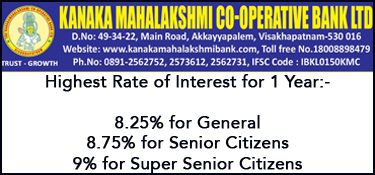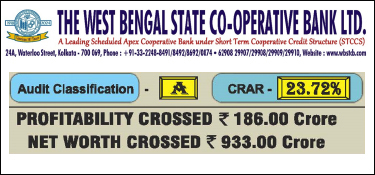One comes across few cases of successful urban co-op banks in north India and Uttar Pradesh based Multi-State Urban Cooperative Bank, Shivalik Mercantile Cooperative Bank is an exception. This year, however the UCB had reduced profit but increased business, as was revealed in the recently concluded AGM of the Bank.
Shivalik Mercantile Cooperative Bank has earned a net profit to the tune of Rs 3.17 crore as on 31st March 2018 but earlier in the FY 2016-17 it was Rs 10.02 crore”, these figures were unveiled during the 21st AGM of the bank held at Saharanpur, Uttar Pradesh.
The 20 years old UCB has been doing fairly well opening new branches and investing in internal systems. The bank’s operating profits have gone down but the overall strength of the bank remains satisfactory.
However, the net NPA of the bank has also increased in the FY 2017-18. The Net NPA stood 1.45% as on 31st March 2018 whereas in the previous year 2016-17 it was 1.35%. The gross NPA stood 2.14% as on 31st March 2018 whereas in the previous year 2016-17 it was 2.29%. The overall NPA scenario is not bad, says banking experts.
The bank has also announced reduced dividends compared to the previous year. The bank will give 8% dividend to its shareholders.
The bank had increased it business mix in the last financial year. The deposit base as on 31st March, 2018 stood at Rs 953.39 Crore, growing 4% against the previous year’s figures of Rs 916.97 Crore. Aggregate advances as on 31st March 2018 were Rs 611.61 Crore as against the previous year’s Rs 559.50 Crore.
The Total business mix stood at Rs 1,565.00 crores as against the previous year’s Rs 1,476.48 crore. The Bank is well capitalized and has a Capital to Risk weighted Assets Ratio (CRAR) as on 31st March, 2018 of 12.68%.
As of 31 March 2018, the Bank had 29 branches and 3 Business Correspondent offices spread over the states of Uttar Pradesh and Madhya Pradesh. The Bank has its branches in UP and MP at present. It is planning to open branches in Delhi and Uttarakhand soon.
The bank started micro-finance to help self-help groups (SHGs). All SHGs comprise only of women, belonging to the marginalized sector. The Bank has connected more than 7,800 SHGs comprising approximately 95,000 individuals to the micro-finance program.


















































